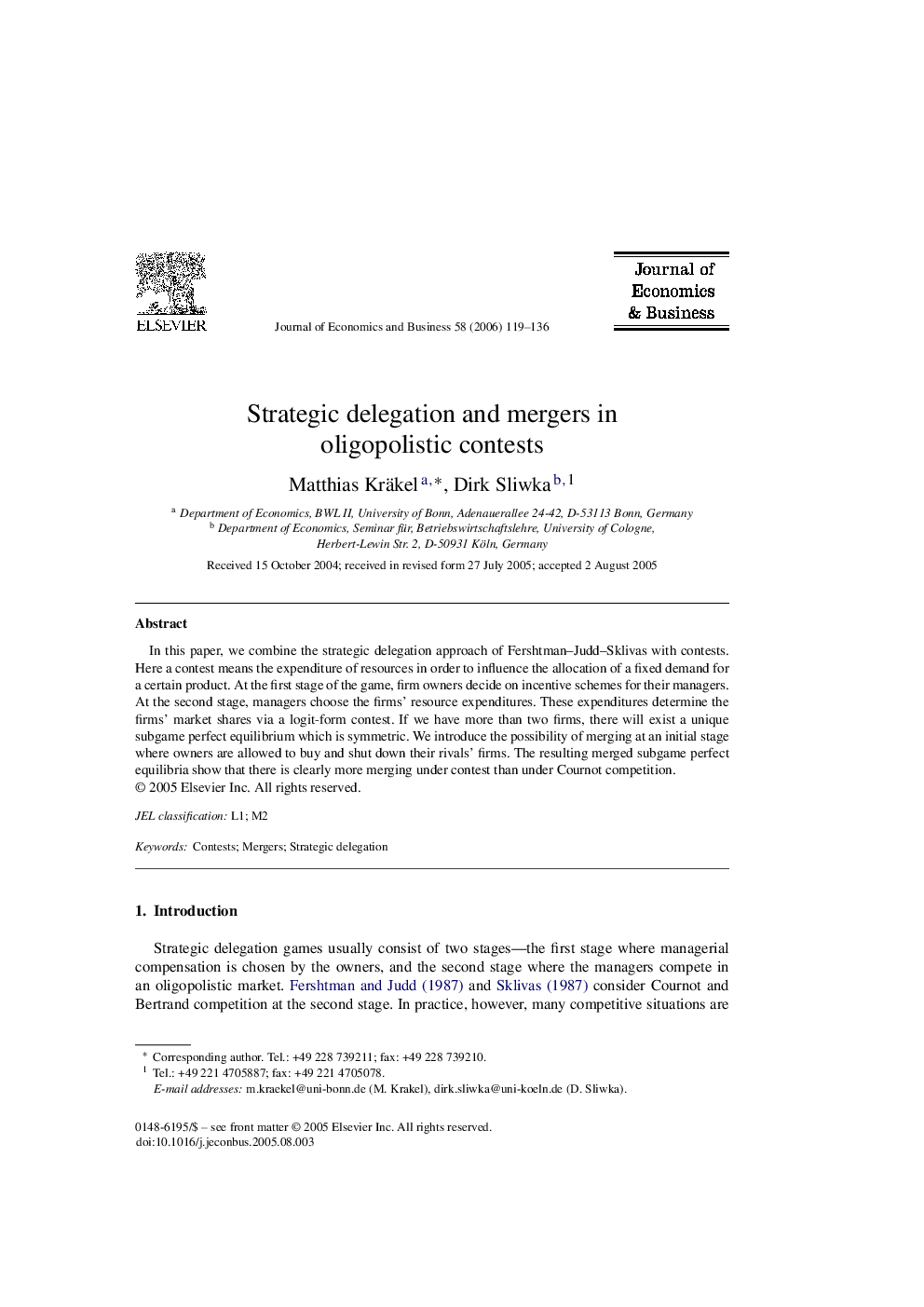| Article ID | Journal | Published Year | Pages | File Type |
|---|---|---|---|---|
| 958182 | Journal of Economics and Business | 2006 | 18 Pages |
In this paper, we combine the strategic delegation approach of Fershtman–Judd–Sklivas with contests. Here a contest means the expenditure of resources in order to influence the allocation of a fixed demand for a certain product. At the first stage of the game, firm owners decide on incentive schemes for their managers. At the second stage, managers choose the firms’ resource expenditures. These expenditures determine the firms’ market shares via a logit-form contest. If we have more than two firms, there will exist a unique subgame perfect equilibrium which is symmetric. We introduce the possibility of merging at an initial stage where owners are allowed to buy and shut down their rivals’ firms. The resulting merged subgame perfect equilibria show that there is clearly more merging under contest than under Cournot competition.
